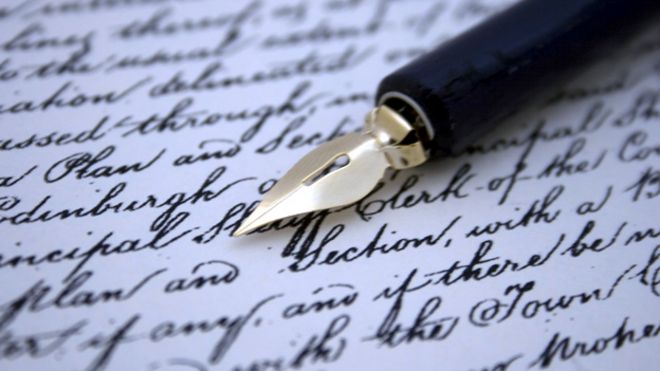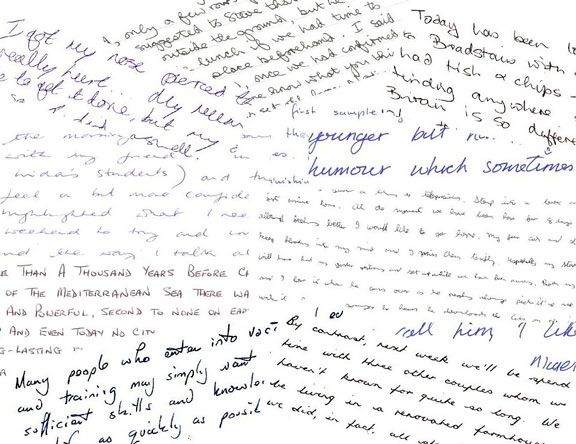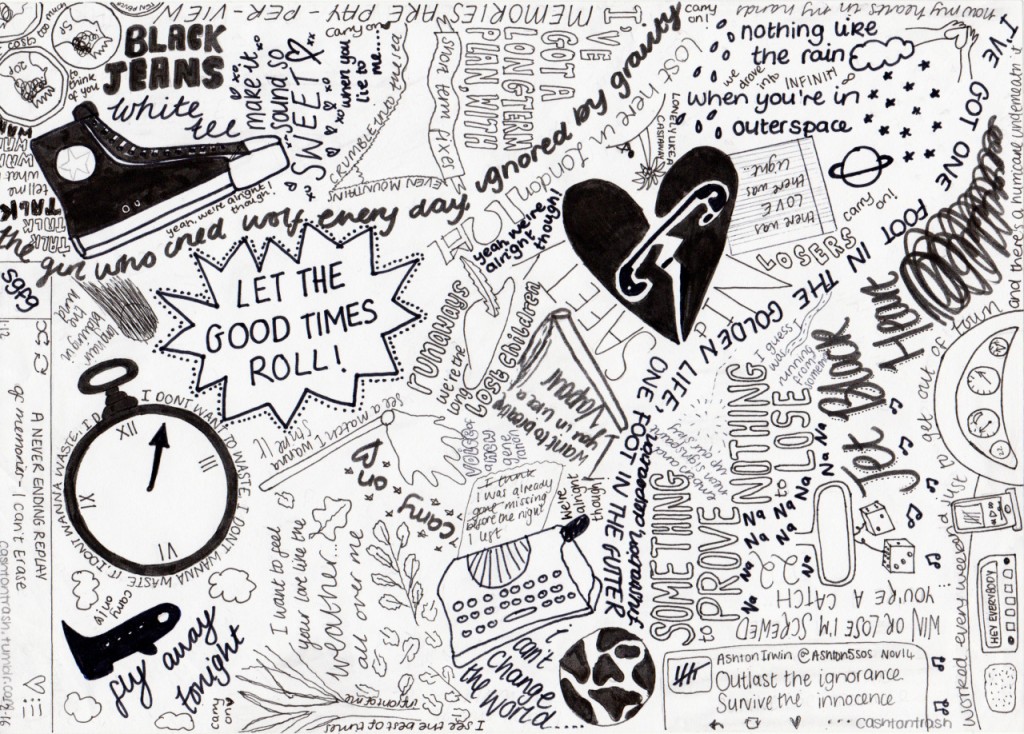QUEZON City, Philippines (February 26) – Do you know what graphology is? It is the study and analysis of handwriting, particularly what a person’s handwriting says about his or her personality. How accurate is it? Well, it depends. But many studies have been conducted to assess the effectiveness of graphology in predicting personality types as well as its effects in job performance.
Graphology may be considered as a pseudo-science but forensic scientists & supporters of this method use it to decipher the personality and psychological state of individuals. It is also old, for it was first developed by the Chinese 3,000 years ago. The ancient Romans also used graphology, then various civilizations and cultures followed, keeping graphology alive through the centuries. Those who believe in graphology say that handwriting can identify the essence of the person who produced it. The modern approach to graphology was established by a group of French clerics, led by Abbe Michon, who defined key aspects of the science in the 1870’s, after 30 years of study. They said that this work formed the basis of modern graphology, although the science is still being researched and expanded today.

There are three unique interpretations of graphology, they are known as the holistic approach, the integrative approach and finally the symbolic approach.
Integrative Graphology is less interpretative and more analytical. It looks for common themes such as a cluster of stroke formations, how close the words are spaced, how tall the capital letters are etc to score a specific personality trait.
Holistic Graphology is a little more free-flowing; it looks at individual traits, such as legibility but doesn’t assign specific meanings to them. Instead the traits of someone’s handwriting are taken into account based on the overall context of the page.
And finally, Symbolic Analysis takes a metaphorical view of handwriting – it’s probably the vaguest of all, assigning the shape and form of words to some kind of trauma or event. For example John Wayne’s autograph highlights a darkened area that has been interpreted as representing his lung cancer. Who is to say whether that is right or wrong?

The premise of graphology is that our central nervous system is responsible for the way our muscles move and react when writing. From there, graphologists seek to evaluate the moment, form, consistency, quality and pattern generated by our stroke and then uses that as a basis for psychological interpretation.
For some who believed in this study, they use this for recruitment, interviewing and selection, team-building, counseling, and career-planning in order define one’s personality and behavior. They look on the letter size, word spacing, dotting our i’s, crossing our T’s, pen pressure, and signature. From there, it has been said that our determination, goals, willpower, persistence, intellect, initiative, ambition, imagination, self-confidence, vanity, repression, aggression, resentment, anger, integrity and above all sociability can all be determined from our handwriting as studied by the graphologists.

Those who oppose or don’t believe in graphology says that graphologists are self-proclaimed handwriting individuals for they have not been proven any substantial way to predict or identify the character traits of an individual. Psychologists have researched connections between the elements of handwriting and personality tests like the Myers-Briggs Type Indicator and their results have shown no correlation.
Said unbelievers point to a 1987 study where graphologists said that they unable to predict scores on the Eysenck Personality Questionnaire using writing samples from the same people. In a 1988 study, graphologists were unable to predict scores on the Myers-Briggs test using writing samples from the same people. A 1982 meta-analysis drawn from over 200 studies concludes that graphologists were generally unable to predict any kind of personality trait on any personality test. They said that Graphology focuses on about the meaning of appearance of your letters, not about the great or not-so-great sentence you’ve strung together. As a result, before the mid-twentieth century, more recent research rejects the validity of graphology as a tool to assess personality and job performance.

Could our handwriting have really something to say about our personality? Or is it just an assumption?
Reference: https://en.wikipedia.org/wiki/Graphology
http://sobadsogood.com/2013/07/26/what-does-your-handwriting-reveal-about-your-personality/
http://www.businessballs.com/graphologyhandwritinganalysis.htm
http://blog.dictionary.com/graphology/
(written by Jasmin Monte, edited by Jay Paul Carlos, additional research by Vince Alvin Villarin)








